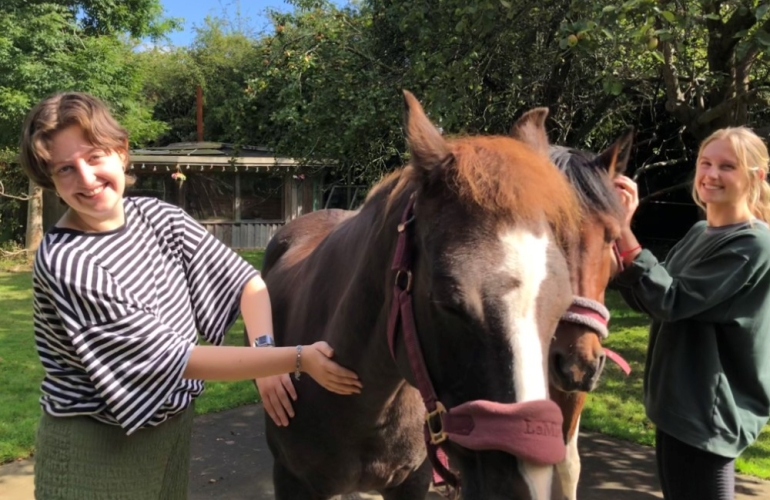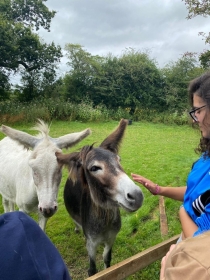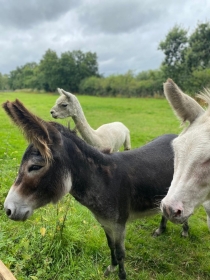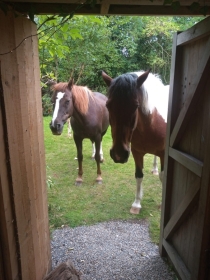Equine Therapy and the holistic benefits for Carers.
Posted: 2.1.25

By Samera Hayes, Frank Communications
In the summer, I went to check out the benefits of equine therapy for myself, my son imagined I would be lying on a chaise longue chatting to a horse seated in a therapist's chair drawing ‘rough’ sketches, on account of his hooves.

Horses have been used for therapeutic purposes since the time of the ancient Greeks but personally I have always been a bit scared of these majestic beasts who can weigh 900 to 2,000 pounds, which became apparent as Magic, one of the horses, placed her hoof on my hiking boot momentarily.
At our first encounter, Magic stood opposite me and eventually nuzzled up against me as she was very relaxed. I am now in week 4 of 6 and after talking to and hugging Magic, I have moved on to leading Tinker (the other horse) and Magic in their paddock.

Tinker is bilingual like me and as he decided to move diagonally in front of me towards Magic and I was able to guide him back to where he needed to go. Learning how to guide, communicate effectively and develop trust, has given me a huge sense of accomplishment and I was beaming with pride.
My son came to collect me and met the horses and he too beamed whilst stroking them. It was such a lovely sight to see as he catastrophises and usually looks deep in thought. I can see being in the open air, using his senses while learning and processing issues, will appeal to him more than traditional talking therapy in an office. Working with a horse during the therapeutic process can create an opportunity to stay present and focused on the task at hand.
My son always says ‘no’ to new ventures, so I was pleasantly surprised having met Magic and Tinker he is quite looking forward to some sessions with them. For those a bit scared of horses there are also two donkeys Brian and Betty and Gary, the llama at this setting.

Animals are non-judgmental and unbiased, if articulating emotions is difficult, as many autistic people have Alexithymia, it can feel a bit easier to process using a horse as an example, or to align their experience with the horse's experiences. Externalizing the issue may make things easier to approach and process through.
Horses also require work. They must be fed, watered, exercised, and groomed. Providing this type of care can often be therapeutic. It can help establish routines and structure, and the act of caring and nurturing something else may help build empathy.
Equine therapy can help with so many skills including confidence and self-esteem, anxiety, trust in self and others, emotional awareness, independence, developing and maintaining relationships, social skills, adaptability and distress tolerance, some of which my son does still need input with.
During equine therapy, there is also a trained therapist and or equine specialist and the focus is on presence, attention, mindfulness and boundaries. I have thoroughly enjoyed my time with the horses and therapists and loved the opportunity of trying something new.
Get in touch
If you'd like to attend our next Equine Therapy Course, please get in touch and we will add you to our waiting list.
Tagged with: #groups #activities #Keepingwell #therapy

